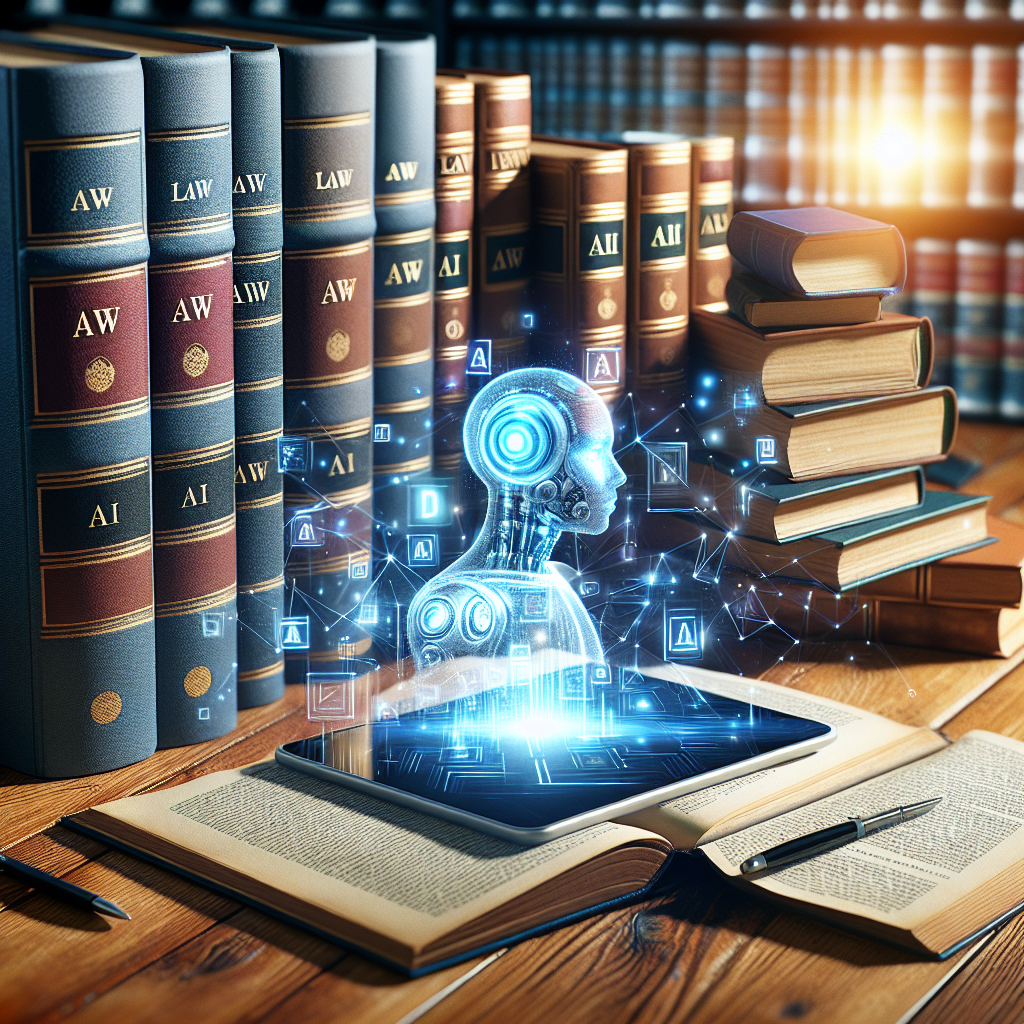Artificial intelligence (AI) is transforming every aspect of our lives, including the field of legal education. With the rapid advancements in AI technology, law schools around the world are incorporating AI into their curriculum to prepare students for the future of the legal profession. This article will explore how AI is revolutionizing legal education and the benefits and challenges that come with it.
The Role of AI in Legal Education
AI technology is being used in various ways to enhance legal education. One of the primary ways AI is transforming legal education is through the use of legal research tools. AI-powered platforms such as ROSS Intelligence and LexisNexis are helping law students conduct research more efficiently and effectively. These tools use natural language processing and machine learning algorithms to analyze vast amounts of legal data and provide students with relevant and up-to-date information.
AI is also being used to improve legal writing skills. Writing is a crucial part of a lawyer’s job, and AI tools like Grammarly and Hemingway Editor can help students improve their writing by providing real-time feedback on grammar, style, and structure. These tools can help students identify and correct errors in their writing, ultimately improving the quality of their work.
Additionally, AI is being used to enhance legal analysis skills. Platforms like Casetext and Ravel Law use AI algorithms to analyze case law and statutes, helping students identify relevant legal principles and arguments. By using these tools, students can develop their analytical skills and gain a deeper understanding of the law.
Benefits of AI in Legal Education
There are several benefits to incorporating AI into legal education. One of the main advantages is that AI technology can help students learn more efficiently. AI-powered tools can provide instant feedback and personalized learning experiences, allowing students to focus on areas where they need improvement. This can help students develop their skills faster and more effectively than traditional methods of learning.
AI can also help students stay up-to-date with the latest developments in the legal field. The law is constantly evolving, and AI tools can help students access the most current information and research. By using AI-powered platforms, students can stay ahead of the curve and develop a competitive edge in their legal career.
Furthermore, AI can help students develop critical thinking and problem-solving skills. By using AI tools to analyze legal issues and develop arguments, students can enhance their analytical skills and learn how to approach complex legal problems. This can help students become better lawyers and advocates for their clients.
Challenges of AI in Legal Education
While AI offers many benefits to legal education, there are also challenges that come with incorporating AI into the curriculum. One of the main challenges is the potential for AI to replace human instructors. Some critics argue that AI technology could replace traditional teaching methods and diminish the role of professors in legal education. However, proponents of AI argue that technology should be used to enhance, not replace, human instruction.
Another challenge is the potential for bias in AI algorithms. AI systems are only as good as the data they are trained on, and if the data contains biases, the AI system may produce biased results. This is a concern in the legal field, where fairness and equality are paramount. Law schools must be vigilant in ensuring that AI tools are free from bias and provide accurate and objective information to students.
FAQs
Q: How is AI being used in legal research?
A: AI-powered platforms like ROSS Intelligence and LexisNexis use natural language processing and machine learning algorithms to analyze legal data and provide students with relevant and up-to-date information.
Q: How can AI help students improve their legal writing skills?
A: AI tools like Grammarly and Hemingway Editor can help students improve their writing by providing real-time feedback on grammar, style, and structure.
Q: What are some AI tools that help students develop their legal analysis skills?
A: Platforms like Casetext and Ravel Law use AI algorithms to analyze case law and statutes, helping students identify relevant legal principles and arguments.
Q: What are some benefits of incorporating AI into legal education?
A: AI technology can help students learn more efficiently, stay up-to-date with the latest legal developments, and develop critical thinking and problem-solving skills.
Q: What are some challenges of using AI in legal education?
A: Challenges include the potential for AI to replace human instructors, the risk of bias in AI algorithms, and the need for vigilance in ensuring AI tools are free from bias.
In conclusion, AI is transforming legal education in many ways, from enhancing legal research and writing skills to improving analytical abilities. While there are challenges to incorporating AI into the curriculum, the benefits far outweigh the drawbacks. By embracing AI technology, law schools can better prepare students for the future of the legal profession and help them succeed in an increasingly complex and competitive field.

